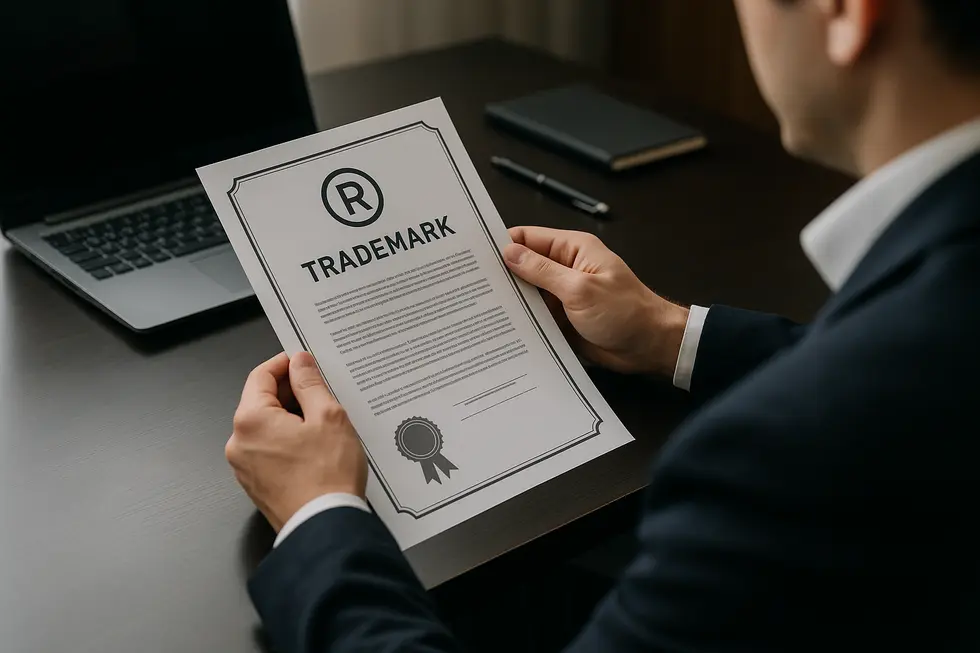Introdução
California brand registration spans multiple industries with unique legal and regulatory frameworks, presenting vital considerations for business owners. From livestock owners securing ownership through state-recognized branding, to alcohol producers ensuring market access via product approval, and packaging producers complying with environmental mandates, brand registration in California is a multifaceted imperative. Each chapter of this guide unpacks one key segment of California’s brand registration landscape—livestock branding, alcoholic product approval, and packaging producer registration under SB 54—equipping business owners with essential knowledge to navigate compliance, protect their brand identity, and effectively operate in the state’s dynamic marketplace.
Tabelas de conteúdos
Chapter 1: California Livestock Brand Registration: Legal Requirements and Procedures
- Navigating Legal Responsibilities and Owner Duties in California Livestock Brand Registration
- Navigating the Essential Steps and Documentation for Livestock Brand Registration in California
- Ensuring Legal Integrity: Compliance and Enforcement in California Livestock Brand Registration
Chapter 2: California Brand Registration for Alcoholic Products: State Approval and Compliance
- Navigating California’s Alcoholic Brand Registration: Essential State Approval Steps and Compliance Requirements
- Navigating Federal TTB Permits: The Essential Step for California Alcohol Brand Registration
- Navigating California’s Alcohol Brand Registration: Licenses, Permits, and Compliance Essentials
Chapter 3: California Packaging Producer Brand Registration: Environmental Regulations and Compliance under SB 54
- Navigating Registration and Reporting Responsibilities for Producers under California’s SB 54
- Driving Sustainability: Environmental Goals and Compliance Strategies in California Packaging Producer Brand Registration
- Navigating Economic and Operational Challenges of SB 54 in California Packaging Brand Registration
Chapter 1: California Livestock Brand Registration: Legal Requirements and Procedures

1. Navigating Legal Responsibilities and Owner Duties in California Livestock Brand Registration
California’s livestock brand registration system is founded on a legal framework that mandates precise procedures to protect ownership rights and maintain industry integrity. Livestock owners must first submit a clear facsimile of their unique brand mark along with a diagram of any livestock earmarks, accompanied by detailed owner information. Prior to official registration, the new brand must be publicly advertised in a California newspaper or other public medium. This step allows stakeholders to raise objections to prevent conflicting or duplicate brand marks.
Owners are legally bound to use their registered brands only in the locations specified on the certificate; branding elsewhere risks invalidating the legal protections. Transfers or sales of brands require a notarized bill of sale, which functions much like real estate conveyances and must be recorded with the responsible division. Leasing a brand also involves filing a formal lease agreement to be recognized legally.
The state maintains robust records cataloging all registered brands, earmarks, their precise animal locations, and ownership details. These requirements ensure transparency, help deter theft, and affirm rightful ownership. Compliance with these obligations safeguards producers and supports California’s well-regulated livestock industry.
For those interested in further details about brand registration legalities and practical guidelines, the California Department of Food & Agriculture Livestock Identification Program offers comprehensive resources.
2. Navigating the Essential Steps and Documentation for Livestock Brand Registration in California
Registering a livestock brand in California involves a clear, structured process designed to protect owners’ property rights and prevent misuse. The owner begins by selecting a unique brand design and, if applicable, associated earmarks. The application must include a facsimile of the brand, a diagram of earmarks, and detailed contact information of the registrant. Additionally, the specific animal type and exact location on the animal’s body for the brand must be indicated since branding outside the registered location is unlawful and invalid.
Before official recording, the brand must be publicly advertised at least once in a state-published newspaper or bulletin to allow objections. If no disputes arise, the brand becomes formally registered with the state. Transfer of brand ownership requires a bill of sale signed and acknowledged in a manner similar to real estate deeds and must be filed with the appropriate division. Leasing a brand also demands filing a signed lease copy to maintain proper records.
This careful documentation and public notice system not only secures legal recognition but also reduces conflicts by making ownership transparent. To access official forms and further guidance, contacting the California Department of Food and Agriculture or the county agricultural commissioner is recommended. For detailed legal insights on protecting your brand and its registration process, explore more about marcas registadas legalmente protegidas.
Additional resources such as the California Brand Book provide valuable references for owners managing their registered livestock brands.
3. Ensuring Legal Integrity: Compliance and Enforcement in California Livestock Brand Registration
In California, livestock brand registration is governed by stringent legal standards designed to protect brand ownership and prevent disputes. The process requires submitting a detailed record including a clear illustration of the brand, earmarks, and precise owner information such as name, address, and contact details. Equally important is specifying the exact animal location where the brand will be applied and the types of livestock involved. Before a brand gains official recognition, the proposed design must be publicly advertised in a state publication, allowing for objections. If unchallenged, the brand is officially recorded, ensuring uniqueness and traceability.
Any transfer or sale of a registered brand demands a formal bill of sale, with signatures and acknowledgments analogous to real estate deeds, and must be recorded with the relevant livestock division. Compliance requires strictly applying the brand as registered; deviations risk it being treated as unregistered, which is unlawful. The overseeing division meticulously maintains these records, enabling enforcement actions against unauthorized usage or improper transfers. Legal repercussions serve as a deterrent to protect owners’ rights and uphold market integrity.
For thorough guidance and official procedures, visit the California Department of Agriculture’s brand registration resources.
Chapter 2: California Brand Registration for Alcoholic Products: State Approval and Compliance

1. Navigating California’s Alcoholic Brand Registration: Essential State Approval Steps and Compliance Requirements
Registering a brand of alcoholic products in California requires close adherence to a multi-layered regulatory framework. The process begins with securing a federal basic permit from the Alcohol and Tobacco Tax and Trade Bureau (TTB), which authorizes legal production, importation, or distribution of alcoholic beverages nationwide. Following federal approval, state-level brand registration through the California Department of Alcoholic Beverage Control (ABC) becomes essential to ensure compliance with local laws and enable legal sales within the state. Alongside brand registration, businesses must apply for the appropriate liquor license corresponding to their role—be it producer, wholesaler, or retailer. This application demands extensive documentation, including government-issued identification, business formation papers, proof of premises ownership or lease, financial statements, and background checks. Additionally, applicants often need to obtain zoning permits and publish public notices to invite community feedback, fulfilling transparency and regulatory obligations. If operating under a trade name differing from the legal entity, filing a Doing Business As (DBA) registration is also necessary. Due to the complexity and varying requirements based on business type, many entities seek professional guidance to streamline the process and maintain full compliance. For detailed guidance, consulting the California Department of Alcoholic Beverage Control’s brand registration resources is strongly recommended. To understand how brand registration fits within broader business protections, exploring the benefits of protecting your business identity with a marca registada legalmente protegida can offer further insights.
2. Navigating Federal TTB Permits: The Essential Step for California Alcohol Brand Registration
Before any alcoholic product can be legally sold in California, securing federal authorization through the Alcohol and Tobacco Tax and Trade Bureau (TTB) is crucial. The core of this federal compliance lies in obtaining the TTB Federal Basic Permit, a mandatory credential for producers, wholesalers, or importers engaging in activities such as producing, bottling, or distributing alcoholic beverages. Businesses must apply for the permit by submitting Form TTB F 5630.5d along with documentation confirming business formation, federal EIN, proof of business premises, and government-issued identification. Given the typical 10 to 12 weeks processing duration, early application is vital to avoid delays.
Once the federal permit is granted, brand labels and product details must undergo TTB registration and approval before proceeding to state-level brand registration with California’s Department of Alcoholic Beverage Control (ABC). This two-tiered system ensures that all alcoholic products meet stringent legal and labeling standards nationwide and at the state level, protecting consumers and maintaining market integrity. Understanding and following these federal prerequisites is indispensable for smooth entry into California’s regulated alcohol marketplace.
For guidance on this process, consult Park Street’s overview of permits for alcohol brand creation and explore comprehensive insights on protecting your brand with intellectual property strategies such as trademarking at marcas registadas legalmente protegidas.
3. Navigating California’s Alcohol Brand Registration: Licenses, Permits, and Compliance Essentials
Securing approval for an alcoholic product brand in California requires navigating a multi-layered legal landscape that begins with obtaining federal permits from the Alcohol and Tobacco Tax and Trade Bureau (TTB). Whether producing, wholesaling, or importing alcoholic beverages, these basic federal permits are mandatory prerequisites to state application. Once federally authorized, applicants must pursue a California state liquor license from the Department of Alcoholic Beverage Control (ABC), selecting the appropriate license type—ranging from beer and wine permits to full liquor licenses—aligned with their business model and operational scope. Alongside licensing, Responsible Beverage Service certification is often required to ensure that staff meet state-mandated training standards to promote safe, legal alcohol sales. Protecting the brand identity entails registering trademarks with the United States Patent and Trademark Office, safeguarding intellectual property and complying with federal labeling laws that often involve obtaining Certificates of Label Approval for certain products. On the marketing front, all advertising must adhere to strict regulations promoting truthful, non-deceptive messaging that fully discloses alcohol content and product details. Given the regulatory complexity, many businesses find leveraging expert legal guidance advantageous for efficient compliance. The California Department of Alcoholic Beverage Control remains a pivotal resource for state requirements, complemented by federal oversight through the TTB.
For more insight on protecting brands within regulated industries, exploring the importance of marcas registadas legalmente protegidas provides valuable context.
Chapter 3: California Packaging Producer Brand Registration: Environmental Regulations and Compliance under SB 54

1. Navigating Registration and Reporting Responsibilities for Producers under California’s SB 54
California’s SB 54, known as the Plastic Pollution Prevention and Packaging Producer Responsibility Act, mandates comprehensive registration and reporting for producers of single-use plastic packaging and food serviceware sold within the state. All producers—including brand owners, manufacturers, importers, and retailers—must register with the Circular Action Alliance (CAA), the state’s designated Producer Responsibility Organization. Registration opens August 1, 2025, with a firm deadline on September 5, 2025.
Following registration, producers are required to report detailed packaging data covering calendar year 2023. This includes quantities, weights, and material types of packaging introduced into the California market. The reporting portal becomes available September 15, 2025, and submissions must be finalized by November 15, 2025. These data feed into fee assessments starting January 2027 and help monitor California’s waste reduction initiatives.
Compliance entails signing the Participant Producer Agreement and maintaining internal tracking systems for packaging footprint by material. Noncompliance risks costly fines and restrictions enforced by CalRecycle. Early identification of producer status and proactive data management supports both regulatory adherence and sustainability goals. This evolving framework aligns with the broader Extended Producer Responsibility movement, assigning producers accountability for environmental impacts of their packaging.
For robust compliance guidance and strategic planning, businesses can consult detailed frameworks provided by legal experts specialized in California regulations. More insight into brand protection and intellectual property can be explored through resources such as the marca registada legalmente protegida.
Further comprehensive compliance details are available at Foster Garvey’s California SB 54 Compliance.
2. Driving Sustainability: Environmental Goals and Compliance Strategies in California Packaging Producer Brand Registration
California’s SB 54 establishes a groundbreaking framework for packaging producer brand registration, emphasizing sustainability and environmental accountability. Producers—including manufacturers, importers, brand owners, and retailers—must register with the Circular Action Alliance by September 5, 2025, reporting detailed data on single-use plastic packaging sold in California. This transparency enables accurate fee assessments starting in 2027, funding recycling infrastructure and pollution reduction efforts.
SB 54 compels businesses to enhance product design, optimize material choices, and improve recyclability to meet California’s ambitious source reduction targets. Non-compliance invites stiff penalties from CalRecycle, including fines up to $50,000 per day and sales restrictions, underscoring the law’s enforcement rigor. By integrating robust internal tracking systems and aligning product portfolios with SB 54 mandates, producers can manage risks and strengthen market position.
This legislative model reinforces California’s leadership in Extended Producer Responsibility, promoting lifecycle stewardship and circular economy principles. For companies navigating these requirements, early preparation is vital. More detailed regulatory guidance and compliance strategies are available through legal experts and dedicated resources such as the Circular Action Alliance.
For additional insights on protecting your brand within complex regulatory landscapes, explore marca registada legalmente protegida.
Source: Foster Garvey alert, July/August 2025
More information at Circular Action Alliance.
3. Navigating Economic and Operational Challenges of SB 54 in California Packaging Brand Registration
California’s Packaging Producer Brand Registration under SB 54 reshapes economic and operational responsibilities for producers of single-use packaging and plastic food serviceware. Beginning in January 2027, producers must pay fees based on detailed packaging data submitted to the Circular Action Alliance (CAA), the state-designated Producer Responsibility Organization. This fee structure is eco-modulated, rewarding recyclable or compostable materials with lower fees while penalizing non-recyclable items with higher costs or bans. These requirements bring significant financial implications, including fines up to $50,000 per day for non-compliance and possible sales restrictions.
Operationally, producers face strict annual registration deadlines by September 5 and must deliver comprehensive reports by November 15 on packaging materials sold in the prior year. This mandates robust internal tracking systems and rigorous data management to identify packaging types, material composition, and the presence of harmful substances, such as those on Proposition 65 lists. Smaller producers may qualify for exemptions but must carefully assess eligibility.
To mitigate these challenges, companies should prioritize sustainable design shifts toward recyclable or compostable packaging while establishing reliable data collection frameworks. This strategic change not only promotes environmental sustainability but also aligns with regulatory compliance. For further insights on protecting business assets amid such regulatory complexities, consider exploring marca registada legalmente protegida.
More details on the regulation can be found on the official Circular Action Alliance website: https://www.circularaction.org/
Considerações finais
Successfully navigating California’s brand registration landscape is crucial for business owners across diverse sectors. Whether protecting livestock ownership through state-registered brands, securing market approval for alcoholic products, or complying with stringent environmental packaging rules under SB 54, understanding these registration processes ensures legal compliance and strengthens brand security. This comprehensive approach underscores California’s commitment to ownership rights, consumer protection, and environmental responsibility. Taking proactive steps in each domain empowers businesses to mitigate risks, avoid penalties, and foster sustainable growth in a competitive, highly regulated marketplace.
Get your trademark today! Thousands have protected their brand by filing a trademark. What are you waiting for? Start your trademark application now!
Sobre nós
The globe’s top website for registering trademarks and safeguarding your brand, name, logo, or slogan. We simplify the trademark process with expert guidance, ensuring your intellectual property is protected seamlessly.







